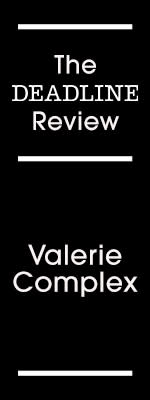‘Ernest Cole, Lost And Found’ Review: Raoul Peck Chronicles The Life And Work Of South African Unsung Hero Ernest Cole – Cannes Film Festival


Ernest Cole: Lost and Found, directed and written by Raoul Peck and narrated by Lakeith Stanfield, invites us into the life and voice of one of South Africa’s influential yet unsung heroes of photojournalism and activism. Through words and imagery, this documentary introduces the world to Ernest Cole, a pioneering freelance photographer whose work captured the brutal realities of South African apartheid and the enduring struggle for freedom.
Ernest Levi Tsoloane Kole, born in 1940 in Eersterust, Pretoria, began his career sweeping floors in a Johannesburg photography studio. He finally broke through when hired by famed Black outlet DRUM magazine in the late 1950s. Cole’s lens was unflinching, and his images of the oppressive apartheid state quickly made him a target for the South African government. Through his pictures, he chronicled how racism existed in every facet of daily life and how the intense subjugation forced the Black people of South Africa to learn and navigate the language of servitude.
More from Deadline
Cole frequently took images of Black South Africans at work as he observed women working low-paying jobs as maids and nannies, while the men went to work in the mines. He held a particular focus on the faces of his subjects, which held the look of sadness, and disdain. The global community was aware of the atrocities going on, but calls for change were met with indifference. By 1966, Cole had fled Johannesburg for Europe, leaving his home but never forgetting his objective: to one day see a free South Africa.
Peck’s documentary delves into Cole’s life with a depth that illuminates his life and work, while Stanfield embodies Cole’s voice with empathy. The film interweaves Cole’s photographs, personal writings and the recollections of those who knew or worked with him and thoroughly blurs the lines between past and present, making it feel as though the photographer himself is guiding the audience through his extraordinary journey. His first book, 1967’s House of Bondage, serves as a focal point in the film as it was a scathing indictment of apartheid, and its international impact exacerbated his exile and prevented him from returning to his homeland.
Cole’s travels took him to Europe, particularly Sweden, where his work was displayed in museums and gave the world a glimpse of life under apartheid. When the photographer eventually reached the United States, he received a grant from the Ford Foundation to document the lives of Black Americans in the rural South and northern cities. Through his travels in America, Cole found stark similarities between the American South and South Africa, and his images documented the gentrification, displacement, poverty and violence directed toward Black Americans. This culminated as realization for him: that the fight against oppression was a global phenomenon and he was powerless to stop it. Unfortunately, this photo series never produced a published book, as his White colleagues commented that his photos “lacked edge.”
Peck does create space for levity within Cole’s story as he found solace in the freedoms that living in New York City offered. Taking pictures of happy interracial couples and queer couples kissing, hugging and holding hands in public surprised him because that was something he never saw public in South Africa. On the other end of the spectrum for him, the city carried an aloofness as he captured people going through the motions of fast-track city life that often is unfeeling, and unyielding. This made the photographer extremely homesick, which expedited his mental decline. His demoralization reached its peak, and he gave up on photography entirely. Cole died in 1990 from cancer at 47, two years before Nelson Mandela was released from jail and apartheid was ended.
Leslie Matlaisane, Cole’s nephew, received a call from Sweden about the discovery of more than 60,000 of the photographer’s 35mm negatives in a Stockholm bank vault. He wanted an explanation of how the photos got there and who had been paying for the vault all these years, but upon arriving in Sweden, those concerns were met with microaggression and were dismissed. This reflects the broader narrative of systemic disregard and erasure that Cole fought against throughout his life.
Ernest Cole: Lost and Found stands as a powerful testament to Cole’s life and work. It is a reminder of the spirit required to confront and document injustice and the personal cost that often accompanies such commitment. Peck’s film is a necessary tribute that ensures Ernest’s contributions are recognized and remembered for generations. His book and photos challenges us to reflect on the enduring nature of white supremacy and the power of visual storytelling in the fight for justice.
Title: Ernest Cole, Lost And Found
Festival: Cannes (Special Screening)
Director-Screenwriter:: Raoul Peck
Narrator: Lakeith Stanfield
Distributor: Magnolia Pictures
Running time: 1 hr 45 min
Best of Deadline
Broadway Spring 2024: Sufjan Stevens ‘Illinoise’ & All Of Deadline’s Reviews
Berlin Film Festival 2024: Award Ceremony, Film Premieres & Red Carpet Gallery
Sundance Film Festival 2024 Photos: Award Ceremony, Film Premieres & Parties Gallery
Sign up for Deadline's Newsletter. For the latest news, follow us on Facebook, Twitter, and Instagram.

 Yahoo News
Yahoo News 